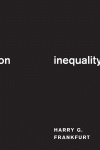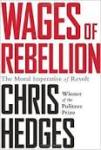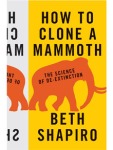On Inequality is a curious book. For one thing, it’s based on material previously published. That’s not unusual in itself, but in this case the earlier work dates from 1987 and 1997. It’s not often that a new book in the social sciences, never mind the hard sciences, relies so comfortably on such ancient sources.
Frankfurt’s book appears to have been prompted primarily by the unexpected popularity of Thomas Piketty’s Capital in the 21st Century, which makes an argument against income inequality with which Frankfurt strenuously — and repetitively — disagrees.
I’m not unsympathetic with Frankfurt’s quite narrow central thesis: “From the point of view of morality, it is not important that everyone should have the same. What is morally important is that each should have enough.” You don’t have to distribute ten jackets equally among eight people to give everyone a jacket. Point made.
Seems obvious enough, yet Frankfurt spends all of his short book making and remaking this simple point. Weren’t the original journal articles sufficient? Why go to this trouble now, unless to attempt to remedy the lack of attention paid to the point then by cashing in on the current interest piqued by Piketty?









